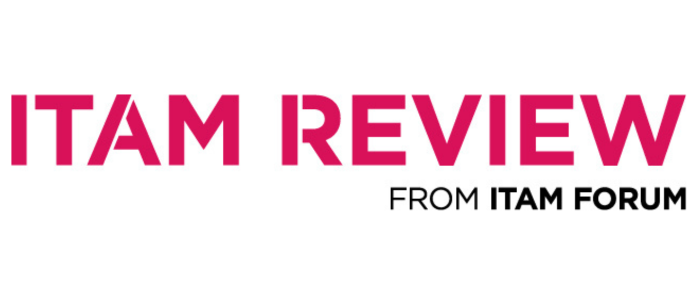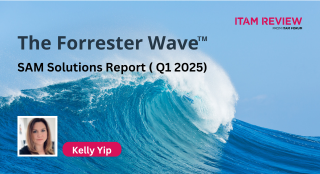Does increased regulation benefit software buyers?
One of the less prominent battlegrounds in the upcoming US presidential election will be regulatory oversight of so-called “Big Tech” companies – Alphabet, Amazon, Apple, Meta, and Microsoft, amongst others – by the FTC. Similarly, the EU Competition Commission is actively pursuing companies it says are guilty of anti-trust violations and exploitation of monopoly power. The EU has a long history of action against tech companies alongside blanket regulation such as the GDPR. The claim from regulators is that these actions are necessary to protect consumers from exploitation by technology companies and to ensure effective competition is possible.
To what extent is this true? And, has regulatory oversight actually delivered on its objectives?
A Brief History of Antitrust Regulation
This year marks the 110th anniversary of the founding of the Federal Trade Commission (FTC). The FTC was established because of the Clayton Antitrust Act, which further strengthened 1890’s watershed Sherman Act. These acts and regulators were established to address the monopolistic power of companies operating in the steel, oil, and tobacco industries. They successfully targeted such well-known names as Rockefeller, Carnegie, and JP Morgan. As with big tech today, market power was concentrated in a few companies that profited from US industrialisation in the late 1800s.
Fast forward a few decades, and we come to the first use of antitrust legislation in what we would recognise as a technology market – the breakup of AT&T into the so-called “Baby Bells”, which introduced competition into the telephony market. This is significant for the current actions being taken against Big Tech because they and AT&T benefited from a common phenomenon – network economics.
What is Network Economics?
Put simply, network economics equates value and utility with the number of users of a product or service. The more users, the more useful it becomes. In the case of AT&T, telephony only became useful if you could contact the people you wanted to speak to. With each new subscriber, the network became more valuable and ultimately, a “winner takes all” scenario – something familiar to anyone using Microsoft or Apple OS to shop on eBay or Amazon.
In itself, network economics is efficient and reduces waste. To take the AT&T example, it would clearly be wasteful to run multiple telephone networks. The same is true for other utilities such as power and water. A problem only arises if ownership of the network is exploited by the owner. Usually, the solution is to decouple the network from the firm selling services which use it. For example, in the UK, Openreach own and maintain the communications networks. It was established as a separate entity within British Telecom (BT) following pressure from the regulator OFCOM. Similarly, National Grid manage the power transmission infrastructure whereas numerous utility companies sell the electricity & gas transported by that network.
Why Network Economics is an Issue for Regulating Big Tech
These examples illustrate how separating ownership and control of the infrastructure from the services that run on it can help reduce the inherent monopoly-forming and market power concentration problems in network economics. The issue with Big Tech is that this separation has not yet taken place. To use Facebook as an example, only Meta can exploit the network benefits (millions of users) of its infrastructure to deliver products and services to its customers. The same is true of other networks such as X.
Competition authorities recognise this and sometimes successfully enforce the separation of services from infrastructure. In the EU, for example, Apple must allow third-party App stores to deliver applications to iOS devices. Perhaps the most important impact of this is (if you’re a gamer) the return of Fortnite to mobile devices. This is a good example of how regulators can chip away at technology companies benefiting from network economics.
However, to what extent does this benefit consumers? Let’s look at another example from Microsoft.
Microsoft vs the Regulators
It’s safe to say that Microsoft has had plenty of disputes with, in particular, the EU Competition Commission. To date, they’ve been fined more than $2bn during the past two decades for breaches relating to bundling of media players, MS Office, and not implementing web browser choice screens.
Most recently, following a complaint from Slack, Microsoft has unbundled Teams. Our Microsoft Analyst Kelly Yip provides the following context for this:
Following the Anti-trust scrutiny faced by Microsoft, on 1 April 2024 Microsoft unbundled Teams from its Microsoft 365 plans worldwide, and it’s no longer possible to purchase M365 with Teams included.
In response to this change, Microsoft reduced the cost of M365 (without Teams) by a small margin. They also added Microsoft Teams Enterprise as a separate SKU at a price of $5.25. For Microsoft customers who want to use the functionality of Teams alongside M365, this represents a relatively drastic pricing increase, of around 8%.
Fortunately, customers with existing bundled subscriptions are somewhat protected from this increase as they can continue to renew existing bundles, and we are yet to hear of any end date to this availability. That said, net-new subscriptions will need to be purchased under the new pricing structure at an increased overall cost.
If attempted to draw on any positives, for customers who only used Teams because it was included with Microsoft 365, or customers who preferred an alternative tool but chose Teams because of the bundle, this unbundling could mean a genuine opportunity to explore alternatives.
So, is this a hollow victory for the EU and its citizens versus Microsoft? It’s likely if you’ve invested time and processes into Teams, you won’t be able to easily move away. Rather like changing email providers, the impact is a lot of disruption for a similar experience. I’m sure Slack are pricing aggressively for customers wanting to make the switch, but that would have been the case anyway. Meanwhile, Microsoft continues to dominate the business software market. There are no signs of any real challenge to its dominant market position.
Conclusion
It’s not just Microsoft and Apple that attract regulators’ attention. Google received $9bn+ fine for breaches relating to search and advertising. The FTC recently filed suit against Adobe for alleged practices, which make it difficult for consumers to cancel Creative Cloud subscriptions.
Stepping away from business software, we see social networks under increasing regulatory scrutiny, particularly in relation to child safety.
Regardless of the outcome of the upcoming presidential election, it’s likely the FTC and DoJ will continue to chip away at the edges of market dominance enjoyed by technology firms. It may need to be a long game – it took eight years for AT&T to be broken up. Whilst that happens, dominant players will continue to operate as virtual monopolies and benefit from the associated advantages. Clearly, even billion-dollar fines aren’t a sufficient deterrent.
Can’t find what you’re looking for?
More from ITAM News & Analysis
-
AI Is Here—And It’s Your Best ITAM Ally, Not Your Replacement
I’ve been asked several times over the last couple of years how AI will impact ITAM and how it will impact jobs. Well, who knows what will actually happen in the future, but my guestimate is ... -
FinOps for SaaS: A Step in the Right Direction, But Will It Work?
The FinOps Foundation is making a bold attempt to get better visibility and control of SaaS applications. This has been driven in part because the vast majority of FinOps teams also manage SaaS to some extent. ... -
The Forrester Wave SAM Solutions Report (Q1 2025)
Forrester, the US based research firm, recently released its latest SAM Solutions Wave report for Q1 2025. The report reflects its research and analysis of nine SAM providers it considers to matter the most, and scores ...
Podcast
ITAM training
Similar Posts
-
AI Is Here—And It’s Your Best ITAM Ally, Not Your Replacement
I’ve been asked several times over the last couple of years how AI will impact ITAM and how it will impact jobs. Well, who knows what will actually happen in the future, but my guestimate is ... -
FinOps for SaaS: A Step in the Right Direction, But Will It Work?
The FinOps Foundation is making a bold attempt to get better visibility and control of SaaS applications. This has been driven in part because the vast majority of FinOps teams also manage SaaS to some extent. ... -
The Forrester Wave SAM Solutions Report (Q1 2025)
Forrester, the US based research firm, recently released its latest SAM Solutions Wave report for Q1 2025. The report reflects its research and analysis of nine SAM providers it considers to matter the most, and scores ... -
Will 'Sustainable IT' be Caught in the Crossfire?
In the days immediately following his inauguration, President Trump and his team declared war on Diversity, Equity, and Inclusion (DEI) programs at the federal level. The impact has been felt far and wide. Many government contractors ...




